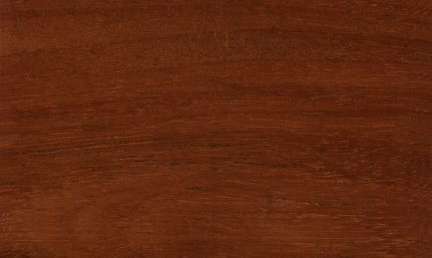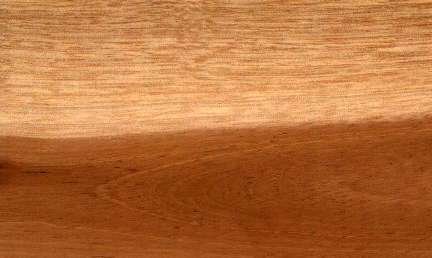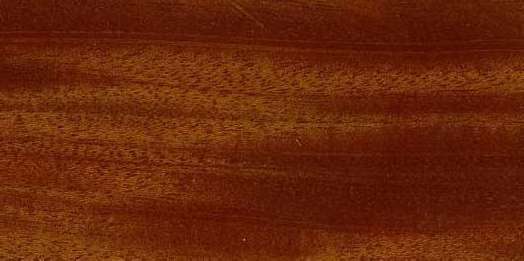  
Cuban mahogany (Swietenia mahagoni)
Family: Meliaceae
Common names: Acajou, Acajou de Cuba, Acajou de Saint Domingue, Acajou de St. Domingue, Acajou des Antilles, Aguano, Antillen mahogani, Bay mahogany, Caoba, Caoba de Santo Domingo, Caoba Dominicana, Caobilla, Chiculte, Cobano, Cuban mahogany, Curlet mahogany, Dominican mahogany, Echites mahagoni, Gateado, Jamaica mahogany, Kuba mahogany, Madiera, Mahagoni, Mahog, Mahogany, Mahogany du pays, Mahogany petites feuilles, Mahok, Mahoni, Mongo, Orura, Small-leaf mahogany, West Indian mahogany, West Indies mahogany
Distributed in: Bahamas, Bolivia, Brazil, Columbia, Cuba, Dominican Republic, Guadelope [France], Haiti, Jamaica, Mexico, Peru, United States, Venezuela (Central America, Latin America, North America, Oceania and S.E. Asia)
Distribution overview: The growth range of the species extends from southern Mexico into northern South America, the West Indies, Cuba, Haiti, Jamaica, and the Dominican Republic. The tree is extremely widespread in Florida.
Common uses: Baskets, Bent Parts, Boat building (general), Boat building, Boat building: decking, Boat building: framing, Boat building: planking, Building materials, Cabinetmaking, Canoes, Carvings, Chairs, Chests, Cooperages, Core Stock, Decorative veneer, Desks, Dining-room furniture, Domestic flooring, Drawer sides, Drawing boards, Excelsior, Figured veneer, Fine furniture, Flooring, Food containers, Framing, Fuelwood, Furniture , Furniture components, Furniture squares or stock, Furniture, Handles: general, Hatracks, Heavy construction, Interior construction, Interior trim, Joinery (external): ground contact, Joinery, Kitchen cabinets, Lifeboats, Light construction, Living-room suites, Millwork, Office furniture, Pallets, Paneling , Paneling, Parquet flooring, Plain veneer, Plywood, Tables , Toys, Turnery, Veneer, Veneer: decorative, Woodenware
Product sources: Cuban mahogany is currently available in adequate quantities at moderate prices, but supplies are expected to decline because of very high demand.For more than two centuries Cuban or Spanish mahogany has been the most favored wood in the world for making cabinets, but its indiscriminate exploitation has severely eroded its commercial importance. The species is hard to buy; export from Cuba has been banned since 1946, and it is scarce and unavailable in commercial quantities from Haiti, Jamaica, and the Dominican Republic.
Environment profile: Widespread
Tree size: Trunk diameter is 150-200 cm
Colors: the heart isYellow to golden-yellow to orange, Yellowish brownand the sapwoodWhite to yellow, Whitish.The grain isWavy, the textureMedium to coarseand the lusterPronounced
Natural durability: Susceptible to marine borer attack, Susceptible to pinhole borers
Odor: No specific smell or taste
LightInduced Color Change: Darker
Kiln Schedules: UK=E US=T6D2/T3D1 Fr=5
Kiln Drying Rate: Drying rate is fairly rapid to fast
Drying Defects: Slight distortion, Slight surface checking
Ease of Drying: Easy
Tree Identification: Bole/stem form is not buttressed
Comments: Exposure to sunlight may cause fading General finishing qualities are rated as good Mahogany is regarded as the most valuable timber tree in tropical America. It is believed to have been used by the European colonists as early as the sixteenth century, if not earlier. The name Mahogany is often used to refer to many species, some of which are not even mahoganies, such as the Philippine mahogany. The best of the species, which is very scarce, is reported to grow in the West IndiesTension wood may be present
Blunting Effect: Slight
Boring: May be some chipping & tearing when working figured wood
Carving: Fairly good response to preservative treatment
Cutting Resistance: Easy to saw
Gluing: Easy to glue
Mortising: Material tends to chip and tear
Moulding: Poor moulding
Movement in Service: Poor moulding
Nailing: Good nailing properties, Holds nails well
Planing: Figured material may cause grain to chip and tear
Resistance to Impregnation: Sapwood is resistant
Response to hand tools: Good response
Routing recessing: Routing is easy
Sanding: Easy to sand
Veneering qualities: Easy to cut
Steam bending: Good
Screwing: Good screwing properties
; Turning: Good results
Polishing: Good; Staining: Stains well; Varnishing: Good;
- Numerical data Metric
- Numerical data English
- Strength properties
- References
 |
 |
 |
 |
| Item |
Green |
Dry |
Metric |
| Specific Gravity |
0,53 |
0,57 |
|
| Density |
|
657 |
kg/m3 |
| Bending Strength |
629 |
950 |
kg/cm2 |
| Crushing Strength |
301 |
498 |
kg/cm2 |
| Hardness |
|
449 |
kg |
| Impact Strength |
|
|
cm |
| Shearing Strength |
|
139 |
kg/cm2 |
| Stiffness |
74 |
90 |
1000 kg/cm2 |
| Tangential Shrinkage |
|
|
% |
| Radial Shrinkage |
3 |
|
% |
| Weight |
641 |
624 |
kg/m3 |
| Maximum Load |
0,49 |
0,7 |
cm-kg/cm3 |
| Toughness |
|
|
cm-kg |
| Static Bending |
|
|
kg/cm2 |
|
 |  |  |  | | Item | Green | Dry | English | | Bending Strength | 8955 | 13519 | psi | | Density | | 41 | lbs/ft3 | | Hardness | | 990 | lbs | | Maximum Crushing Strength | 4289 | 7086 | psi | | Shearing Strength | | 1989 | psi | | Stiffness | 1065 | 1281 | 1000 psi | | Work to Maximum Load | 7 | 10 | inch-lbs/in3 | | Specific Gravity | 0.53 | 0.57 | | | Weight | 40 | 39 | lbs/ft3 | | Radial Shrinkage | 3 | | % | | Tangential Shrinkage | 5 | | % | |
Density (dry weight) = 46-52 lbs/cu. ft.
Max. crushing strength = medium
Modulus of Elasticity (stiffness) = very low
Density (dry weight) = 53-60 lbs/cu. ft.
Density (dry weight) = 31-37 lbs/cu. ft.
Shrinkage, Tangential = very small
Shrinkage, Radial = very small
Bending strength (MOR) = medium
Shrinkage, Tangential = small
Shrinkage, Radial = moderate
Density (dry weight) = 38-45 lbs/cu. ft.
Bending strength (MOR) = low
Bending strength (MOR) = high
Work to Maximum Load = low
Weight = moderate
Shrinkage, Radial = small
Modulus of Elasticity (stiffness) = low
Max. crushing strength = high
Hardness (side grain) = very soft
Hardness (side grain) = soft
Hardness (side grain) = medium
Crushing strength = high
Boone, R.S., C.J. Kozlik, P.J. Bois, E.M. Wengert. 1988. Dry Kiln Schedules for Commercial Hardwoods - Temperate and Tropical. USDA, Forest Service, General Technical Report FPL-GTR-57, Forest Products Laboratory, Madison, Wisconsin.Cuevas, E.,1977,American Mahogany (Swietenia spp.,C.S.I.R.O. Div. Building Research Information Service Sheet,10-12Forest Trust - Goodwood. 1993. Personal CommunicationHarrar, E.S.,1942,Some Physical Properties of Modern Cabinet Woods 3. Directional and Volume,Shrinkage,Tropical Woods,9(71, pp26-32HMSO.1981.Handbook of Hardwoods, 2nd Edition.Revised by R. H. Farmer.Department of the Environment, Building Research Establishment, Princes Risborough Laboratory, Princes Risborough, Aylesbury, Buckinghamshire.International Tropical Timber Organization (ITTO) 1991. Pre-project Study on the Conservation Status of Tropical Timbers in Trade. Reported by the World Conservation Monitoring Center (WCMC, Cambridge, LondonKaiser, Jo-Ann.Wood of the Month.Wood & Wood Products, July 1986 to September 1993.Kynoch, W., Norton, N.A.,1938,Mechanical Properties of certain tropical woods chiefly from S. America,School of Forestry and Conservation, University of Michigan Bulletin,No.7Lincoln, W.A. 1986. World Woods in Color. Linden Publishing Co. Inc., Fresno, California.Little, E.L., Wadsworth, F.H.,1964,Common Trees of Puerto Rico and the Virgin Islands,U.S.A. Department of Agriculture, Agriculture Handbook,No.249Longwood, F.R.,1962,Commercial Timbers of the Caribbean,U.S.A. Department of Agriculture, Agriculture Handbook,No.207Martawijaya, A., Kadir, K., Kartasujana, I.,1986,Indonesian Wood Atlas. Vol.1.,Department of Forestry Agency for Forestry Research and Development.,Bogar-IndonesiaSallenave, P.,1955,Proprietes Phyiques et Mecaniques des Bois Tropicaux de l'Union Francaise,C.T.F.TSmith, E.E.,1954,The Forests of Cuba,Maria Moors Cabot Foundation,U.S.A. Publication, No. 2Swabey, C.,1941,The Principal Timbers of Jamaica,Department of Science and Agriculture Jamaica Bulletin No.29Takahashi, A.,1975,Compilation of data on the Mechanical Properties of Foreign Woods (Part 2,Central and South America,Shimane University, Japan, Research Report on Foreign Wood No.4Timber Development Association,1942,Spanish Mahogany - Swietenia mahagoni,Trada Timber Leaflet No. 22WCMC. 1992. Conservation Status Listing - Trees and Timbers of the World, World Conservation Monitoring Centre, Plants Programme, 219 Huntingdon Road, Cambridge, CB3 ODL, United Kingdom.Woods, R.P.,1949,Timbers of South America,TRADA, Red Booklet Series
|










